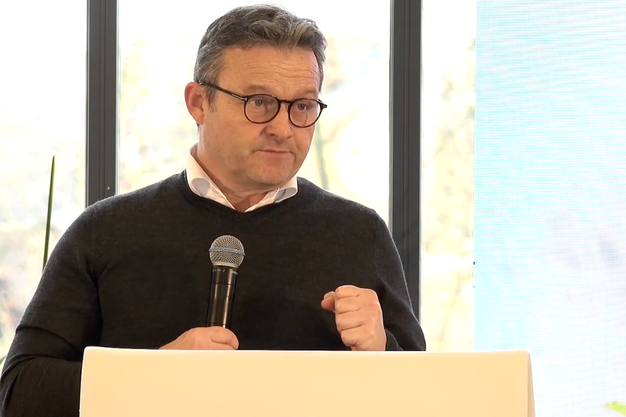Kevin Welner elected to distinguished National Academy of Education Board of Directors – University of Colorado Boulder

Report on NAEd Board Appointment and its Alignment with Sustainable Development Goals
1.0 Introduction
- Professor Kevin Welner, a research professor at the University of Colorado Boulder School of Education and director of the National Education Policy Center, has been elected to the Board of Directors for the National Academy of Education (NAEd).
- The appointment is for a four-year term, commencing in November 2025.
- This report analyzes the significance of the appointment in the context of the United Nations Sustainable Development Goals (SDGs), particularly those concerning education, equality, and institutional strength.
2.0 Alignment with SDG 4: Quality Education
- The appointment highlights a significant contribution towards achieving SDG 4: Ensure inclusive and equitable quality education and promote lifelong learning opportunities for all.
- Professor Welner’s body of work is directly relevant to the core targets of this goal.
- Target 4.5 (Equity): His extensive research on “opportunity gaps” and “equity in public education” directly supports global efforts to eliminate disparities and ensure equal access to all levels of education for vulnerable populations.
- Target 4.7 (Education for Sustainable Development): His focus on “education justice” promotes the development of learners who can contribute to sustainable societies.
- The NAEd’s foundational mission to advance high-quality education research for use in policy and practice reinforces the institutional framework necessary to achieve SDG 4.
3.0 Contributions to SDG 10: Reduced Inequalities
- Professor Welner’s scholarship is central to the objectives of SDG 10: Reduce inequality within and among countries.
- His work on school reform and justice influences the creation of policies aimed at mitigating systemic inequalities in educational systems.
- Target 10.2 (Social Inclusion): By addressing inequities in public education, his research promotes the social and economic inclusion of all individuals, irrespective of their background.
- Target 10.3 (Equal Opportunity): The analysis of opportunity gaps provides critical data for policies designed to ensure equal opportunity and reduce inequalities of outcome.
4.0 Strengthening Institutions and Partnerships (SDG 16 & SDG 17)
- The election recognizes an individual whose work strengthens the link between research and policy, a key component of SDG 16: Promote peaceful and inclusive societies for sustainable development, provide access to justice for all and build effective, accountable and inclusive institutions at all levels.
- Professor Welner’s position on the board will contribute to the NAEd’s role as an effective and accountable institution shaping national education policy.
- This appointment also exemplifies SDG 17: Strengthen the means of implementation and revitalize the Global Partnership for Sustainable Development, by fostering collaboration between academic institutions like the University of Colorado Boulder and policy-influencing bodies such as the NAEd.
- The Dean of the CU Boulder School of Education, Amanda Haertling Thein, affirmed that Professor Welner’s contributions are an invaluable asset, underscoring the institutional commitment to advancing these goals.
Analysis of Sustainable Development Goals in the Article
1. Relevant Sustainable Development Goals (SDGs)
-
SDG 4: Quality Education
- The entire article is centered on the field of education. It highlights the work of the National Academy of Education (NAEd), whose mission is to “advance high quality education research and its use in policy and practice.” The appointment of Kevin Welner, a distinguished education scholar, and the mention of his contributions to “school reform” and “public education” directly connect to the core mission of SDG 4, which is to ensure inclusive and equitable quality education for all.
-
SDG 10: Reduced Inequalities
- The article explicitly states that Welner’s work focuses on “opportunity gaps,” “equity in public education,” and “education justice.” These themes are central to SDG 10, which aims to reduce inequality within and among countries. By addressing disparities in educational access and outcomes, Welner’s research and policy influence contribute directly to ensuring equal opportunity and reducing inequalities, as education is a key determinant of social and economic mobility.
2. Specific SDG Targets
-
Target 4.5: Eliminate gender disparities in education and ensure equal access to all levels of education and vocational training for the vulnerable.
- This target is directly relevant because the article emphasizes Welner’s extensive publications on “opportunity gaps” and “equity in public education.” His work aims to understand and address the systemic barriers that prevent certain groups of students from having the same educational opportunities as their peers, which is the essence of ensuring equal access and eliminating disparities as outlined in Target 4.5.
-
Target 10.3: Ensure equal opportunity and reduce inequalities of outcome, including by eliminating discriminatory laws, policies and practices.
- The article identifies Welner as a “nationally recognized education law scholar” whose work “influences both scholarship and policy” related to “education justice.” This aligns perfectly with Target 10.3, as his efforts are focused on shaping and reforming the legal and policy frameworks that govern education to ensure they promote equal opportunity and actively work to close the “opportunity gaps” that lead to inequalities of outcome.
3. Implied Indicators for Measuring Progress
-
Indicator for Target 4.5: Measures of educational disparity (Implied).
- The article does not mention a specific quantitative indicator. However, the reference to Welner’s research on “opportunity gaps” implies the use of metrics that measure disparities in educational access, resources, and outcomes between different student populations. This is conceptually aligned with the official UN indicator 4.5.1 (Parity indices), which tracks differences based on wealth, location, gender, and disability status. The “opportunity gaps” are the qualitative problem that such quantitative indicators are designed to measure.
-
Indicator for Target 10.3: Development of equity-focused educational policies (Implied).
- Progress towards this target is implied through Welner’s work that “has shaped and distilled national conversations around education justice and continues to influence both scholarship and policy.” An indicator of this progress would be the number and scope of new or revised educational laws and policies that are enacted based on research like his, specifically aimed at promoting equity and reducing discrimination within the education system.
Summary Table of SDGs, Targets, and Indicators
| SDGs | Targets | Indicators |
|---|---|---|
| SDG 4: Quality Education | Target 4.5: By 2030, eliminate gender disparities in education and ensure equal access to all levels of education and vocational training for the vulnerable. | Implied Indicator: The existence and measurement of “opportunity gaps” in public education, which serves as a proxy for parity indices that track disparities in educational access and outcomes. |
| SDG 10: Reduced Inequalities | Target 10.3: Ensure equal opportunity and reduce inequalities of outcome, including by eliminating discriminatory laws, policies and practices. | Implied Indicator: The influence of scholarship on policy, measured by the development and implementation of laws and policies aimed at achieving “education justice” and equity. |
Source: colorado.edu
What is Your Reaction?
 Like
0
Like
0
 Dislike
0
Dislike
0
 Love
0
Love
0
 Funny
0
Funny
0
 Angry
0
Angry
0
 Sad
0
Sad
0
 Wow
0
Wow
0














































































